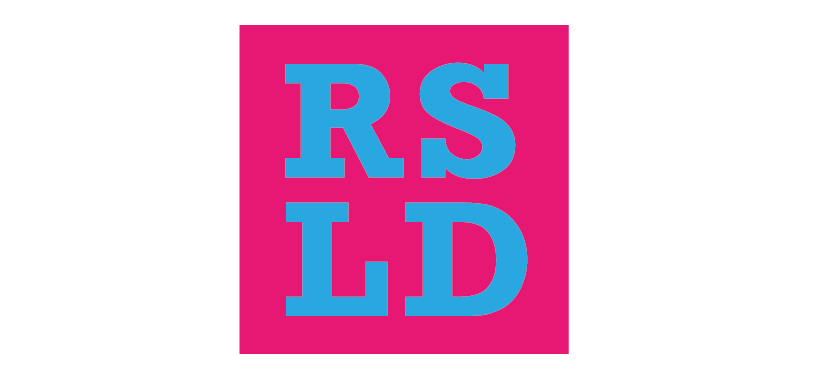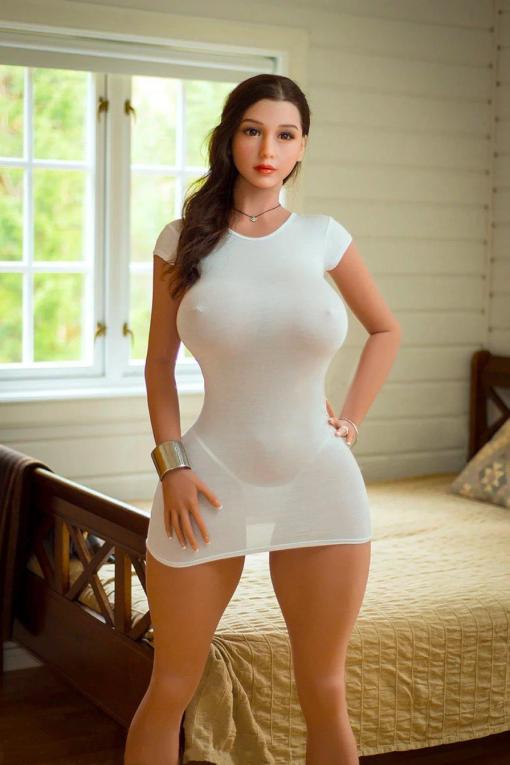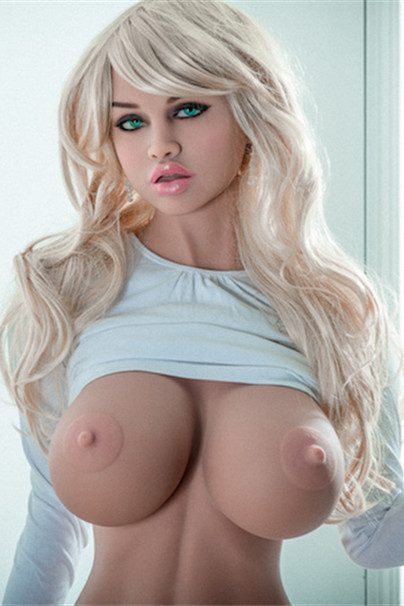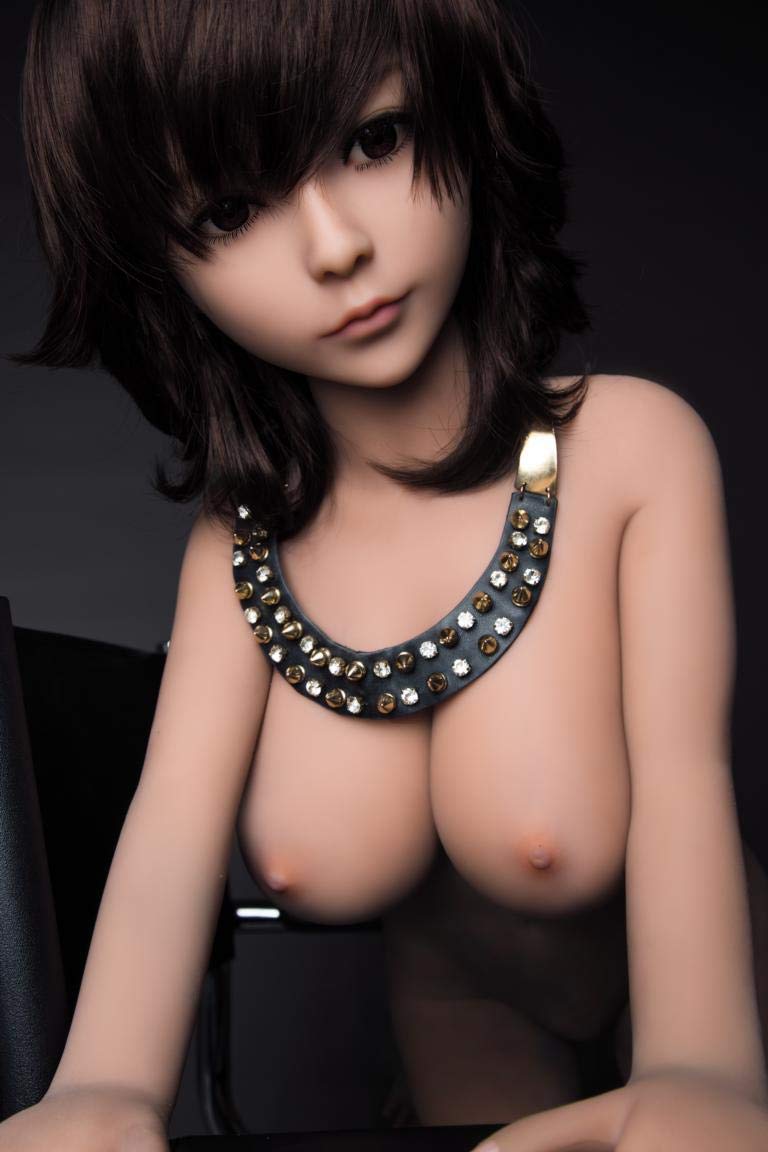No products in the cart.
Q&A
30 cm anime sex doll
(Popularity Rate: 82 ) Why aren’t sex toys FDA-regulated?
g a difficult time keeping up with the current demand for its oversight. More recently personal lubricants have come under more scrutiny since they typically go inside Big Booty Sex Dollof an orifice. Many of the leading brands of lubricant such as Astroglide, ID Glide, and Healthy Vibes have gone through and become FDA 510(k) approved. The 510(k) is the FDA regulation for medical devices. The rumor around the industry and that the FDA is 30 cm anime sex doll starting to come down on lubricant companies.
One of the issues with the 510(k) regulation is that th
(Popularity Rate: 51 ) Is there any sex toys store available in Kozhikode?
similar to having vaginal sex for the first time. By that I mean that you want to be very wet.
When you have vaginal sex you don’t just lay down and insert the penis in your vagina. You get in the mood, you kiss, you use fingers/mouth and when you’re horny enough intercourse happens.Now you can’t do a lot of these things when using a dildo by yourself, but you can make sure you’re in the mood enough.
Use your fingers, use the dildo on your clitoris, watch some porn if you’re into that. Think of a crush you want to sleep with. All these things don’t only get your mind into the mood, but your body as well. Love DollThe muscles around your vagina relax a little, making it easier to enter. Combine that with being wet and it should be a little easier.
Don’t try to slide the dildo in all at once, it will be painful. Start gently at the opening of your vagina and try to push it in a little deeper with a pulsating motion. Don’t worry if it doesn’t work the first few times. Intercourse takes a few (or sometime
(Popularity Rate: 33 ) Imagine for a moment that voodoo dolls are temporarily real. You can have one of anybody and have one minute to make it do anything. Who and what to do are your choices?
Bezos Money Nuff said? make him sign it over… or my first thought was a pretty woman but that doesn’t make sense.. If I had a Pretty woman in the room with a voodoo 30 cm anime sex doll doll then it would be like having a remote controlled girl? That would be awesome but for a minute?
(Popularity Rate: 98 ) Are sex toys forbidden in Judaism?
If they have batteries than they are forbidden on Shabbat according to contemporary Orthodox opinion.
Otherwise, as we say in Yiddish, Gezunterheit (enjoy)!
(Popularity Rate: 25 ) Why do conservative men complain about liberal women not wanting to date them? They claim that conservative women are prettier and that liberal women are fat, ugly and repulsive.
iberal spectrum.
In this present environment, there is heightened hostility to men deemed conservative, especially ones who would openly fly the Trump flag. That’s going to be just about the #1 deal-breaker to a typical liberal woman (can’t say I don’t understand why).
If we assume that only 70% of the eligible men in DC are liberal, that creates a pretty big disparity on the dating scene. If political differences become a deal-breaker, that becomes three conservative guys chasing every conservative girl. Not the greatest odds. It would seem like the well-adjusted, attractive conservative women would be snatched up pretty quick in that type of environment.
Basically, these Trump guys have sacrificed their dating life in pursuance of career ambitions. They would probably have much better luck back in the home district.
But generally, whenever anyone is put into the situation where they’re going to be rejected romantically by practically anyone, before they can even get their foot in the door, they are going to get frustrated.
Finally, I didn’t see anything in this article about conservative men claiming that liberal women are ugly or whatever. That’s the kind of shit that gets mostly thrown around in alt-right/MRA forums by (mainly) guys who would have trouble getting with chicks of any political persuasion.
p.s. I’ve been watching The Wire lately (extremely minor spoiler ahead).
I just saw the scene last night where McNulty is on a date in DC, circa late 2004, and shrugs his shoulders and was like, “I didn’t vote, what’s the point?”
(Popularity Rate: 99 ) Love dolls look like real women, so what is the solution to the philosophical issue named by TV Tropes as “what measure is a human”?
ruths. I will only speak to tropes involving women and LGBT folks as I am a member of these communities, and don’t feel as though I should speak on behalf of other minority groups. Some of these will be official trope names, while others will simply be descriptions as they are recurring themes that I have noticed through the years.
I will try to name an example for each one, as well as a show that inverted the trope where possible. I want to be clear that I do not think the shows included in the examples are bad shows, in fact, they are some of my favourite shows of all time. But unfortunately at times, they play into negative tropes, as all shows do.
Nagging wife
This trope has been around forever. You have a male lead with a nagging wife who is mostly universally hated. It often makes female characters one-dimensional, and promotes hatred toward women. All marriages are going to have problems, but this trip comes down to how it is played – if the woman is objectively in the right, does the narrative support that?
Example: Skyler White in Breaking Bad.
One of the most hated female characters of all time, the actress herself had to write an article defending the character
, and received many death threats. Although in the first couple of seasons Skyler is actively trying to keep Walt alive and healthy (think of the soy bacon), and later is trying to keep him from participating in his illegal activities (he is a drug manufacturer), she is portrayed as antagonizing our hero.
Inversion: Beth Pearson in This Is Us.
To be fair, I had to pick another character who was introduced to us as a wife (ie. didn’t exist as a character before the marriage) and was firmly seen as a supporting character. Beth is married to a man with some issues, but is generally seen as good, successful, and respectful. Despite this, Randall often makes some poor decisions in terms of his health, career, and family. Beth is consistently the person who has to set him back onto the right path, but the show portrays it in a supporting way, rather than domineering.
Stupid female love interest
Oftentimes women are portrayed as being unintelligent and malleable in the face of a conniving and manipulative love interest. Hollywood, women are not this blind to every single red flag, especially when we have to be on guard constantly because – men can be dangerous!
Example: Guinevere Beck in You.
Beck is a Master’s student, and yet, can’t see any warning signs in Joe, her love interest. Joe stalked her until he eventually caught her in his web, and consistently lets on that he’s dangerous. Somehow, she doesn’t realize this until he literally has her locked in a cage.
Inversion: Delilah Alves in You.
Same show, different season. You is able to right their wrongs in season 2, introducing a character and brief love interest for Joe who doesn’t consistently fall for his manipulations and is skeptical from the start. She is intelligent, a self-starter, and one of the best characters to come from the show.
Female transformation
You all know this trope. A female is not the epitome of Western Hollywood beauty – she may be fat, have a big nose, not white, frizzy hair, acne, glasses, whatever. Usually they are still attractive, they just don’t look like supermodels. Then they are somehow reinvented and made over, and they are stunning. All the men want them, all the women want to be them, and their life improves significantly. Ladies – you don’t have to look like a playboy bunny to be beautiful, and being hot and skinny will not solve all of your problems. This ruins self-esteem for girls and women, and needs to stop.
Example: Patty Bladell in Insatiable.
I only watched the first episode of this show because that’s how bad it is, but the main gist is an overweight teenager breaks her jaw, has it wired shut for the summer, loses a ton of weight because she can’t eat, and comes back to school as a bombshell. This show literally had a petition going to get it off Netflix before it even aired
, that’s how bad this trope is. Please stop.
Inversion: Deb Dobkins/Jane Bingum in Drop Dead Diva.
It’s been years since I’ve watched this show so sorry for any mistakes, but the idea is a gorgeous model named Deb gets in a car accident and dies at the same time as an overweight lawyer named Jane. Due to plot, Deb’s soul ends up in Jane’s body, and she has to live her life. Deb struggles with her new appearance, used to being conventionally attractive and longing for that life back, but comes to discover that she loves her life as Jane and embraces her body.
Cheating husband = fine, cheating wife = death penalty
This one is pretty simple. Due to misogyny, in television men cheating is seen as par for the course, while women cheating is cause for crucifixion. This is because people take “man and wife” too literally. A man is seen as someone with primal needs and urges, so having them fulfilled outside the marriage is okay, whereas women are wives and should be 100% faithful to their husbands.
Example: Skyler White in Breaking Bad vs. Don Draper in Mad Men.
This is the only example I will reuse. Apologies, but one of the reasons Skylar is so vehemently despised is because she had sex with another man, while separated from her husband. Make sense? Didn’t think so. Meanwhile, on the same channel, Mad Men is airing which more or less features a man cheating on his wife every single episode. I’ve lost count of the amount of women Don Draper had cheated with inside of multiple marriages, and he’s seen as an “alpha male” to these simple viewers.
No trope inversion for this one as I legitimately cannot think of a show on television I personally have watched where a woman cheating was the norm and the fans genuinely thought it was okay.
Closeted homophobe
Often in television, gay characters are forced into the closet because of the narrative. Usually this is so later, after some character development, they can come out. Sometimes they don’t come out, but they still go about their lives. However, once in a while, you get a character who is clearly gay, but also violently homophobic to try and hide this fact. This trope makes gay people look like their own oppressors, and frames the community negatively.
Example: Marshall Langman in Parks and Recreation.
Marshall is a clearly gay man in a straight marriage. His wife heads the community’s family committee, and they are both devout Christians, popping up to fight against sex education, gay marriage (between penguins), and nudity.
I can’t think of a time this trope was inverted in the sense of a straight person pretending to be gay. I highly doubt this has ever happened on television.
Bury Your Gays
This is the trope that simply sees gay people die more often than their straight counterparts, generally after achieving some level of happiness within their queer relationships. It contributes to the overall trope that gay people must suffer.
Example: Lexa in The 100.
This was a huge one a few years ago
, where a lesbian woman was killed off, literally minutes after consummating her relationship with the bisexual protagonist, Clarke. If that doesn’t look like “divine intervention” against LGBT relationships, I don’t know what does.
The inversion would be any LGBT character who gets to live.
No queer happy ending without suffering
Contrarily to Bury Your Gays, sometimes queer characters do get to have a happy ending, but usually they have to fight for it and overcome a massive amount of hardship. Unlike straight couples who just get to exist and no one bats an eye, LGBT relationships have to justify their eventual happiness.
Example: Santana Lopez and Dave Karofsky in Glee.
These two characters went through many similar experiences throughout the show. Both were closeted, both were outed, both faced social ostracization, and both redeemed themselves and got a happy ending. They were also each others beards for a period of time.
Karofsky is first portrayed as a closeted homophobe, bullying the gay student Kurt, eventually kissing him, then threatening him to keep quiet. He transfers schools where he is outed, then bullied to the point of attempting suicide. He reappears in a healthy relationship and is comfortable in his own skin.
Santana’s journey was less dramatic, but still, she has to fight for her ending. She is outed, bullied, rejected by her grandmother, and eventually does get to marry her best friend. But it is not without massive hurdles, and desperate measures to justify her existence.
Inversion: David Rose and Patrick Brewer in Schitt’s Creek.
Schitt’s Creek exists in a universe that is without homophobia. David is pansexual, and this is never seen as an issue to any character on the show. He meets a presumably straight man named Patrick, who eventually comes to the realization that he is gay, and they enter a relationship without any major issues. He comes out to his parents, who accept him without a second thought, and David and Patrick get married in the series finale, with no one ever questioning their sexualities or making a big deal of it. The show makes a statement without having to make a statement.
Promiscuous bisexual
Bisexual people are often portrayed as being indecisive and promiscuous in the media. They are shown to be sex craved, and insatiable. Bisexual people are just like anyone else, some may be promiscuous, some may be monogamous, or anywhere in between. But the media would have us all believe bisexuals are all about partying and threesomes, leading to an awful real life phenomenon called “unicorn hunting”
. This is when a straight couple seeks out a bisexual woman for a threesome. The reason the bisexual is referred to as a unicorn is because a bisexual woman who wants to have sex with a heterosexual couple is just as rare as the mythical creature.
Example: Brittany S. Pearce in Glee.
Another Glee example, but to be fair, this show hits almost every single trope on the list. Brittany is Santana’s eventual wife, but before that, she makes a goal to have kissed every single person in the school. She bounces around from relationship to relationship with men and women like nobody’s business. She is a prime example of the promiscuous bisexual.
Inversion: Delphine Cormier in Orphan Black.
Delphine had never been a relationship with a woman before she met Cosima, and she is only mentioned to have had a relationship with one man previously. She and Cosima manage to stick their relationship out for the duration of the series., without Delphine ever flitting around, flirting or sleeping with other people.
Lesbianism for the male gaze
Lesbianism is often portrayed as sexy, and men love to watch it. “Lesbian” is almost always the top search on any porn website, and this leads to real life incidents of men trying to force women to perform lesbianism in front of them, sometimes leading to violence or sexual assault.
Example: Betty Cooper and Veronica Lodge in Riverdale.
Even in the show, this is done performatively in front of a group of people. They kiss solely to be edgy and sexy, and both women are in strictly heterosexual relationships, showing no interest in women beyond this scene. If you look up the names of these women who have starred in 4 seasons together and kissed for about 7 seconds of the show’s run time, “Veronica and Betty kiss” is the first result on Google.
Inverted: Stef Adams-Foster and Lena Adams-Foster in The Fosters.
Stef and Lena are a married, lesbian couple with a gaggle of children. They often kiss, engage in intercourse, and are affectionate with each other, however, it is never shown as being “sexy”. It’s not a clip men are looking up on YouTube and watching on repeat. It is two women who are in love, and not performing for anyone.
LGBT, but doesn’t say it
Sometimes characters may get paired up with someone of the same gender, but they never actually say the words because that would be crossing the line in the eyes of the writers, the fictional universe, and/or society. This one is especially prominent in bisexuals, as their identities are often erased and they are considered straight or gay, depending on their gender of their partner at any given time, making people believe that bisexuals are just gay people who haven’t committed the whole way yet.
Example: Piper Chapman in Orange is the New Black.
Piper is a woman in a heterosexual relationship, who has had lesbian relationships in the past, and again ends up in a lesbian relationship by the end of the show. She demonstrates attraction to men and women throughout the series, yet manages to go seven seasons without saying the word “bisexual”.
Inversion: Darryl Whitefeather in Crazy Ex-Girlfriend.
If this seems like the most aggressive way to invert a trope throughout television history, that’s probably because it is. Darryl is a man who has just divorced his wife, meets a gay man, and comes to the realization he is bisexual. As this is a musical show, his “coming out” scene is portrayed through a musical number performed in front of a massive bisexual pride flag literally called “Gettin’ Bi”
. When the writers decided on this storyline, they worked with multiple LGBT organizations and learned about the harmful tropes surrounding bisexual people with the intention of inverting every single one. Some examples from the song lyrics include:
Addressing the stereotype that being bisexual is a choice:
“I don’t know how / I don’t know why / But I like ladies / And I like guys / I realize it’s a surprise / But now I see that that’s just me / It’s not like I even try”
Addressing the stereotype that bisexuals are gay men and women who haven’t completely come to terms with their sexualities:
“Now some may say / “Oh, you’re just gay / Why don’t you just go gay all the way?” / But that’s not it / ‘Cause bi’s legit / Whether you’re a he or a she / We might be a perfect fit”
Addressing the stereotype that bisexuals are promiscuous:
“I tell you what / Being bi does not imply that you’re a player or a slut / Sure, I like sex / But I’m no ho / I take things slow”
Addressing the stereotype the bisexuals are indecisive:
“It’s not a phase / I’m not confused / Not indecisive / I don’t have the “gotta choose” blues”
No representation
Although I could go on, the last trope I am going to mention is the lack of representation, or “token” character trope. It is often the case that non-family centred television shows will have a main cast consisting of mostly straight, white men, with maybe one woman, a LGBT person, or a POC in there. This is harmful as it shows that straight, white male is the default, and any deviation is something to note.
Example: the main cast of The Office.
According to IMDB and Wikipedia, this is the main cast of The Office. Through the seasons, some straight, white men come (Andy Bernard), and some straight, white men go (Michael Scott). But this is the main cast, everyone else is considered a supporting character. Although the show does have some diversity in the secondary characters (ie. Kelly and Oscar), the main cast is completely heterosexual and white, and consists of only men, with Pam as the token woman.
Inversion: the main cast of Brooklyn 99.
Brooklyn 99 is one of the few shows where the diversity in the main cast outweighs the lack thereof. Of the main seven characters, 2 are (confirmed) queer, 3 are women, and 4 are POC. There is two black men, one of whom is openly gay, two Latina women, one of whom is bisexual. It is a sho




















